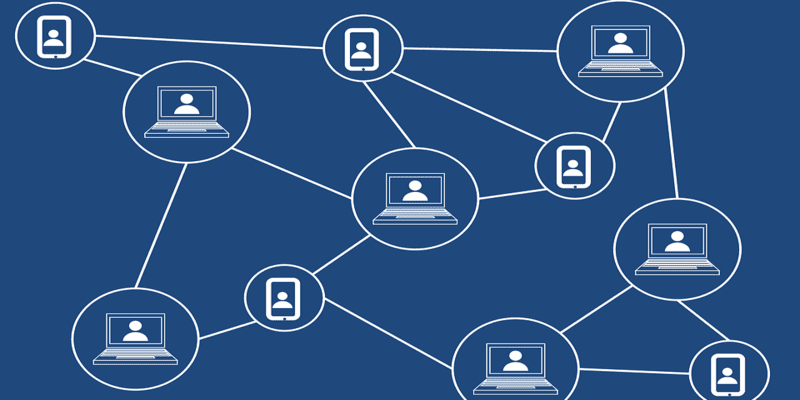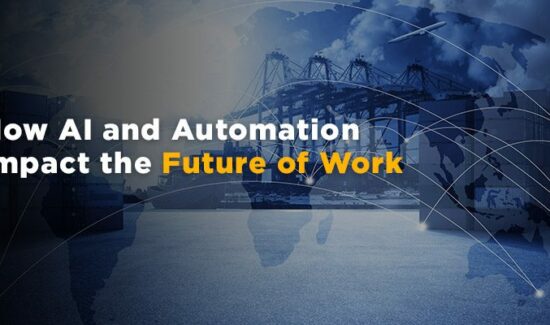The Impacts of Blockchain Technology Within HR and Talent Management


Blockchain technology serves a variety of purposes, and has even started to make an impression within the HR department. Utilizing blockchain offers a wave of opportunity across specific areas of talent management, such as recruitment. For instance, it allows peer-to-peer interactions that decrease middleman costs and streamline the flow of data necessary in the hiring process.
Generally speaking, a blockchain is a continuously growing list of records, called blocks, which are linked and secured using cryptography. “This technology will allow candidates to go directly to the masses while keeping their data confidential,” says Arran Stewart, co-owner of Job.com and guest author for HR Technologist.
“Blockchain technology happens to be one of the most secure, and advanced forms of what we call “distributed ledger technologies” or DLTs. It’s a “ledger” because it keeps track of a list of transactions shared with people in a network,” explains Will Lee, CEO of Blue Whale Foundation. “It’s “distributed” because everyone in that network has an identical copy of this ledger, and they can see all the previous versions of it – like a shared Google document. Now every time a change has to be made, a majority of the people on the network have to agree – or reach consensus – about the change. Once everyone agrees, the change is made, and everyone can see the new edited version. The fact that its “distributed” this way grants reliability and security as it stores data that can’t be altered without majority approval from the network.”
With this in mind, we spoke with Lee bout how exactly blockchain technology is impacting the HR department and how professionals can benefit from utilizing blockchain.
SR: How does blockchain technology assist HR?
“This feature is incredibly powerful for HR professionals especially when it comes to the verification process when you have to evaluate educational qualifications and professional certifications. You want to make sure you’re getting what you paid for, right?
Now in 2013 alone, roughly 3,000 false degrees were being sold. Also, 75% of HR managers having reported catching a lie in a resume. Blockchain holds the potential to quickly and reliably eliminate fraud by giving job seekers the potential to create a digital file of their educational qualifications, and on the other hand, permits employers to verify the accreditation of potential hires within minutes or hours at most. Traditionally, this process takes weeks to confirm.”
SR: How does blockchain improve the hiring and/or the recruitment process?
“Like I explained earlier, blockchain technology is well-suited for improving the hiring and recruitment process because it can provide quick and easy proof of education and work history verification. Over at Blue Whale, we’re particularly focused on addressing this problem especially for firms looking to hire professional freelancers.
Often we see employers who have a difficult time checking reviews of freelancer’s portfolios. Blockchain technology verifies who worked on specific projects and their role in it. So as I mentioned earlier, the decentralized public ledger allows employers to quickly and easily compare and assess potential hires’ based on their verified ratings or reviews. Additionally, because clearly-defined scope of works can be written into smart contracts, compensation is also transparent and automatically paid out upon task completion.”
SR: What about talent management software? How does it play a part in this?
“So talent management has different parts to it right? You have talent acquisition; screening, performance evaluation, and compensation. And then there’s also learning and development. We’ve already talked about how blockchain can help with screening potential hires and streamlining compensation – but there is also a potential for blockchain to play a role particularly in terms of performance evaluation.
One of the things we’re trying to do at Blue Whale is to develop a “Contribution Activity Manager.” It allows people to be rewarded for completing any number of predefined tasks on the network such as dispute resolution, leaving reviews, referrals and so on. That allows individuals’ contributions to specific projects, and also the team in general to be tracked, and rewarded easily and fairly. Of course how fair the system is will depend in large part on the definition of the items which deserve recognition – and part of the beauty of blockchain is that anyone can suggest a change; and as long as the majority of the network approves that addition or deletion, then it will be implemented with minimal delay and unhappiness.”
SR: Are there any talent management solutions available today that incorporates blockchain technology?
“There are definitely attempts at creating blockchain solutions for candidate screening, performance tracking and evaluation, and compensation. But right now, a lot of these services are really fragmented because the sources of the data itself are fragmented – you have numerous educational institutions and various employers across an individual’s lifetime. Creating a common public chain where all of these can be stored and accessed throughout an individual’s journey through various organizations is a challenge that holds the potential to revolutionize global labor markets. But such solutions simply don’t exist in the market today.
What Blue Whale is trying to do is to work with partners to develop universal protocols which support decentralized applications such as marketplaces where employers and independent contractors can connect and collaborate on projects.”
SR: Are there any specific areas of HR where blockchain is more helpful than another area?
“I think blockchain lends itself best to things which require consensus so anything that would normally take a lot of background checking, or multiple layers of confirmation, is where blockchain applications will excel in. One prime example pertains to necessary background checks, an added expense and timely task to complete for employers. Information logged on the blockchain saves both time and money. Employers opting to hire independent contractors realize this benefit, as freelancers often have a substantial amount of job changes rather than a couple of previous employers.”
Related Articles:
Looking for more? Download our talent management buyers guide and check out the top-24 products available in the market with full page vendor profiles, key capabilities and questions to ask yourself and the vendor before purchasing a talent management solution. For those just starting the talent management software search process, this is truly the best resource to help get you going.























